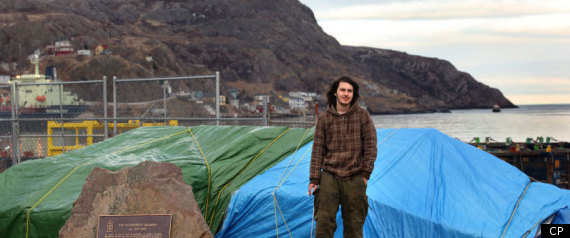BISMARCK, N.D. - An executive with Canadian energy giant TransCanada Corp. says a new route will be proposed soon for the US$7 billion Keystone XL pipeline that has come under fire from critics.
Speaking Wednesday in Bismarck, TransCanada's Alex Pourbaix told North Dakota officials and oil industry representatives the company would present its amended plan to federal regulators "in a matter of a very few weeks."
The U.S. government in November delayed a decision on granting a permit for Keystone XL, largely because of worries about the pipeline's environmental impact, especially in Nebraska.
The disputed route runs through six states from Canada to Texas, carrying oilsands crude from Northern Alberta to refineries.
So-called feeder pipelines would connect the Keystone XL to the rich oil fields in North Dakota and Montana.
Keystone XL is part of a plan by the Canadian oil industry get more of Alberta's expanding oilsands output over the next few years to markets in the United States.
Another proposed pipeline — the Northern Gateway project across northern British Columbia — aims to deliver oil from Alberta to the West Coast for shipment via tanker to Asia.
That pipeline proposed by Enbridge Inc. (TSX:ENB) has also been criticized by environmentalists and is being reviewed by the National Energy Board in hearings that began this week in Kitimat, B.C.
Original Article
Source: Huff
Speaking Wednesday in Bismarck, TransCanada's Alex Pourbaix told North Dakota officials and oil industry representatives the company would present its amended plan to federal regulators "in a matter of a very few weeks."
The U.S. government in November delayed a decision on granting a permit for Keystone XL, largely because of worries about the pipeline's environmental impact, especially in Nebraska.
The disputed route runs through six states from Canada to Texas, carrying oilsands crude from Northern Alberta to refineries.
So-called feeder pipelines would connect the Keystone XL to the rich oil fields in North Dakota and Montana.
Keystone XL is part of a plan by the Canadian oil industry get more of Alberta's expanding oilsands output over the next few years to markets in the United States.
Another proposed pipeline — the Northern Gateway project across northern British Columbia — aims to deliver oil from Alberta to the West Coast for shipment via tanker to Asia.
That pipeline proposed by Enbridge Inc. (TSX:ENB) has also been criticized by environmentalists and is being reviewed by the National Energy Board in hearings that began this week in Kitimat, B.C.
Original Article
Source: Huff
































